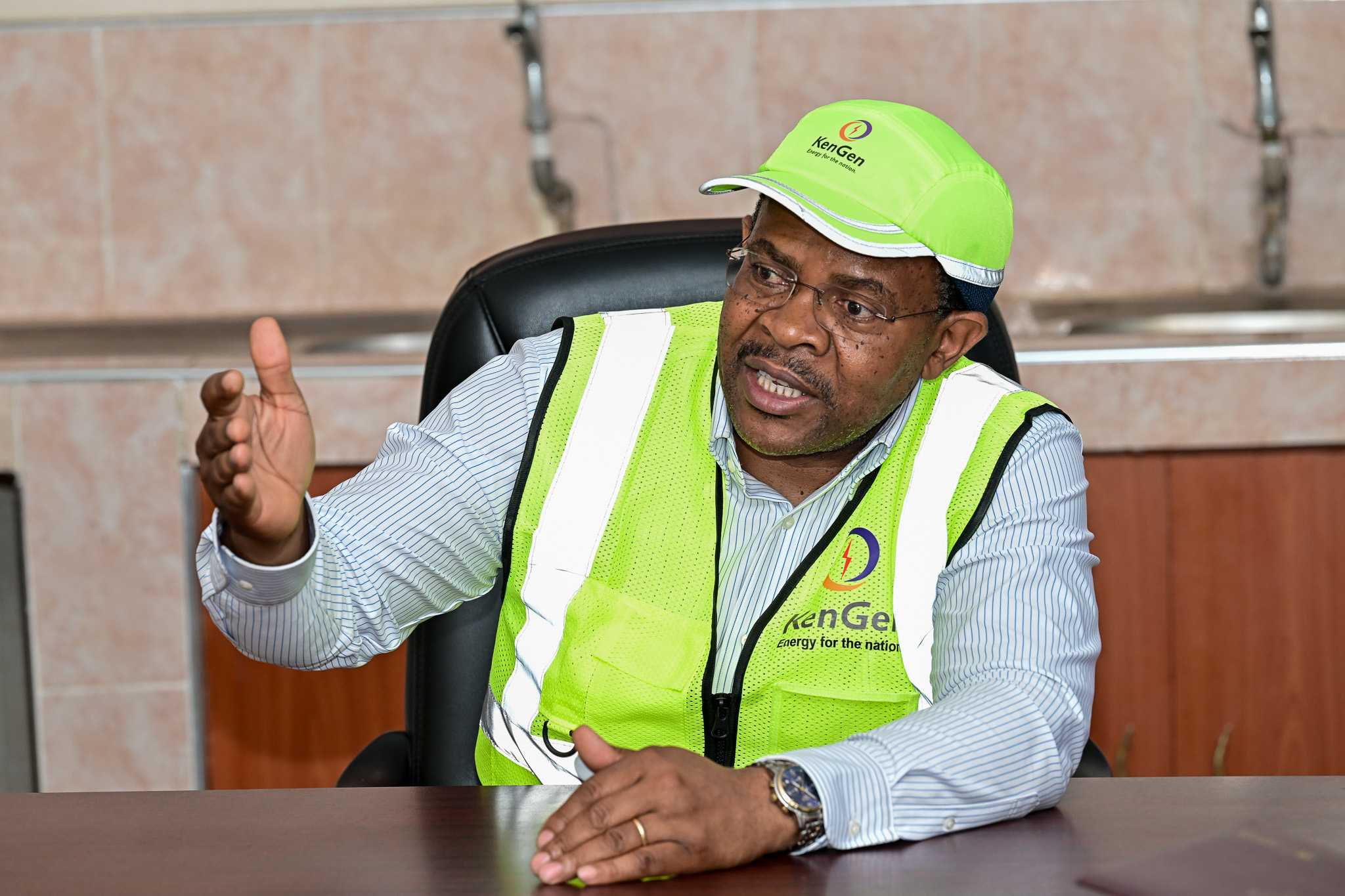Nairobi, Wednesday, July 30, 2025: Kenya Electricity Generating Company PLC (KenGen), the country’s largest power producer, has planted 887,200 trees in 12 months, exceeding the government target of 830,000, in a strategic effort to protect Kenya’s water sources and ensure long-term energy security.
The NSE-listed utility stated that the trees were planted in forested areas crucial to the country's hydropower and geothermal infrastructure, including the Tana Basin, the Mau Forest Complex, and Mt. Elgon.
“KenGen’s outstanding performance in tree growing demonstrates the critical link between clean energy generation and environmental stewardship. By exceeding its target, KenGen is not just powering our nation, it is securing the natural ecosystems that underpin our energy future. This is the kind of leadership we need in the energy sector as we work towards a greener, more resilient Kenya,” said Alex Wachira, Principal Secretary, State Department for Energy.
KenGen has planted more than 2.1 million trees since 2022, when the government launched an ambitious reforestation campaign aimed at planting 15 billion trees by 2032. Overall, the company said it had planted 4.2 million trees since 2013.
“We grow trees to keep turbines running in our power plants located in several counties across the country,” said Peter Njenga, the Managing Director and CEO, adding, “Healthy catchments mean stable hydropower generation.”
“Tree planting must go beyond ceremony,” Eng. Njenga said. “At KenGen, every seedling is planted with purpose, to safeguard our environment, empower communities, and ensure the turbines keep turning.”
Tree planting in Kenya has become a national priority, following years of deforestation, erratic rainfall and declining water levels that have disrupted electricity generation. Hydropower accounts for nearly 30% of Kenya’s daily electricity generation, according to the latest reports from the Energy and Petroleum Regulatory Authority (EPRA).
“In addition to hydropower catchments, we have embarked on reforestation around geothermal fields in Eburru and Enosupukia, areas where we tap underground steam to generate electricity,” said Eng. Peter Njenga.
The tree planting efforts are part of KenGen’s long-term strategy, known as G2G (Good to Great) Strategy 2034, which includes goals related to renewable energy, environmental restoration and community involvement.
In western Kenya, around the Gogo and Sondu power stations, the company distributed over 100,000 seedlings to small-scale farmers. Similar programs, the company said, aim to improve food security and support household incomes. “For our community partners, tree growing is not just about conservation,” a KenGen sustainability officer said. “It’s a source of income, dignity and resilience.”
KenGen has also involved schools and its own staff in the program. Through its Green Initiative Challenge, over 100 schools in Embu, Kitui and Machakos counties have planted 30,000 trees. Staff members have grown more than 80,000 trees in their homes and farms, while partnerships with golf clubs have added another 20,000 trees to urban green spaces.
Ends/
Note to Editor:
About KenGen
Kenya Electricity Generating Company PLC (KenGen) is the leading electricity generation company in the Eastern Africa region, with an installed generation capacity market share of over 60%. The company’s primary business is to provide safe, reliable, and competitively priced electric energy for the country in an environmentally friendly and sustainable manner while creating value for its stakeholders.
Today, KenGen PLC has an installed generation capacity of 1,786 MW, of which over 93% is drawn from renewable sources, namely Hydro (826 MW), Geothermal (754 MW), and Wind (25.5 MW). The balance is from Thermal.
For media queries, please contact: Frank D. Ochieng, Tel: 0721816896 Email: This email address is being protected from spambots. You need JavaScript enabled to view it. or This email address is being protected from spambots. You need JavaScript enabled to view it.
Nairobi, Friday, July 25, 2025: Kenya’s electricity grid has hit a new all-time high, recording a system peak demand of 2,362.28MW on Wednesday, July 23, 2025, marking a critical milestone in the country’s energy consumption trends, driven by industrial expansion, increased urbanisation, and rising domestic energy use.
At the heart of meeting this historic demand was the Kenya Electricity Generating Company PLC (KenGen), which continues to reaffirm its position as the backbone of Kenya’s national grid. KenGen’s geothermal and hydropower delivered the lion’s share of energy to the system, contributing significantly to stabilising supply and preventing outages.
According to the latest reports by Energy and Petroleum Regulatory Authority (EPRA), KenGen’s geothermal plants generated 13,678.35 megawatt-hours (MWh), representing 31.85% of total energy supplied, while its hydropower stations delivered 10,915.93MWh, or 25.42% of the national output. Combined, these sources accounted for over 57% of Kenya’s daily electricity generation, underscoring KenGen’s strategic role in delivering clean, reliable, and affordable power.
“We are committed to supplying steady and reliable baseload power to light our homes and drive Kenya’s industrialisation,” said Eng. Peter Njenga, KenGen’s Managing Director and CEO, adding “this is why in our 10-year G2G strategy, we are working to deliver 1,500MW of electricity all from renewable sources including geothermal, hydro, wind and solar.”
Notably, Kiambere, exceeded expectations by producing 2,908 MWh, 23.31% above dispatch projections. Other major hydros like Gitaru, Kamburu, and Masinga also supported system operations despite flow variability in the cascading river system. This greatly contributed to stabilisation of cost of electricity in the country considering hydro is Kenya’s cheapest source.
Geothermal, meanwhile, proved essential for baseload support, with minimal curtailment. This aligns with Kenya’s long-term energy transition strategy to reduce reliance on expensive thermal imports and enhance renewable generation.
“While the total energy demand for the day stood at 42,943.11MWh, including thermal sources, wind, and interconnectors with Uganda and Ethiopia supplemented generation, we are glad to note that it was KenGen’s steady delivery from indigenous resources that ensured grid stability,” said Eng. Njenga.
The milestone demand came without any reported load shedding, affirming the robust response by system operators. However, transmission lines such as Muhoroni-Chemosit and Kisumu- Muhoroni exceeded 120% capacity, highlighting the need for urgent infrastructure reinforcement to keep pace with surging demand.
With the country’s appetite for power continuing to grow, KenGen’s operational performance goes to show the importance of investing in resilient and sustainable generation capacity.
Ends/
Note to Editor:
About KenGen
Kenya Electricity Generating Company PLC (KenGen) is the leading electricity generation company in the Eastern Africa region, with an installed generation capacity market share of over 60%. The company’s primary business is to provide safe, reliable, and competitively priced electric energy for the country in an environmentally friendly and sustainable manner while creating value for its stakeholders.
Today, KenGen PLC has an installed generation capacity of 1,786 MW, of which over 93% is drawn from renewable sources, namely Hydro (826 MW), Geothermal (754 MW), and Wind (25.5 MW). The balance is from Thermal.
For media queries, please contact: Frank D. Ochieng, Tel: 0721816896 Email: This email address is being protected from spambots. You need JavaScript enabled to view it. or This email address is being protected from spambots. You need JavaScript enabled to view it.
Page 2 of 44







